Introduction
We recently hosted a weekend-long, 22-person retreat in Spain to bring together budding EA communities from the two biggest cities: Barcelona and Madrid, as well as EAs from other parts of the country.
In this post, we’ll walk through a brief history of community building in Spain, why we chose to do the retreat, how we think it went, and what our plans are for the near future. We think the How did we plan the retreat? and Lessons Learned sections will be particularly valuable for other community builders thinking of hosting a retreat, and we’ve also shared some of our documentation in the Resources section, which you’re welcome to copy and make use of.
This post was written by Tristan Williams (Madrid), Melanie Brennan and Anthony Lara (Barcelona).
A brief history of EA in Spain
Effective Altruism (EA) in Spain is still fairly underdeveloped. Like other Southern European countries such as Portugal and Italy, the EA community here exists but is significantly less established than in nearby countries like France or Germany. This is likely due to a mix of factors - including language and cultural barriers, and less investment from major funders (many flourishing EA communities - including France and Germany - line up with places CEA has targeted with its CBG grants).
We think a full deep dive into the history of EA in Spain is beyond the scope of this post, but here’s a quick overview to give more context to the retreat:
- One of the first (known) attempts to build an EA group in Spain happened in Madrid in 2018 with Pablo Melchor, who launched the group alongside others with support from a community building grant. For a 12-month period, the group organised weekly activities and several larger events as well, including a weekend retreat.
- In 2019, Pablo shifted his focus to founding Ayuda Efectiva, Spain’s first platform for effective donations, where he continues to do impactful work. (And he’s soon set to publish his first book, which will be the first original book written in Spanish to discuss “classical EA”).
- Momentum in Madrid paused during COVID and remained low until 2024, when a new wave of local organisers (including Tristan Williams, Pablo Villalobos, Joaquin Wu Lin and later Sebastián Ortega) revived the group. They've since hosted regular dinners, fellowships and co-working sessions, and recently began onboarding new leadership to ensure continuity.
- Following a long period of dormancy, EA Barcelona was relaunched in 2023 by Melanie Brennan and Pablo Rosado with the support of an EAIF grant. They began hosting regular speaker events, coworking sessions, and social activities, quickly establishing the group as an active local hub, and source of community building wisdom in Spain. Anthony Lara later joined as a co-organizer in 2025.
- There have been two attempts to start university groups in Barcelona, one brief and short-lived, and another still active as of now.
- There has been no known significant activity in other cities or campuses around Spain - yet!
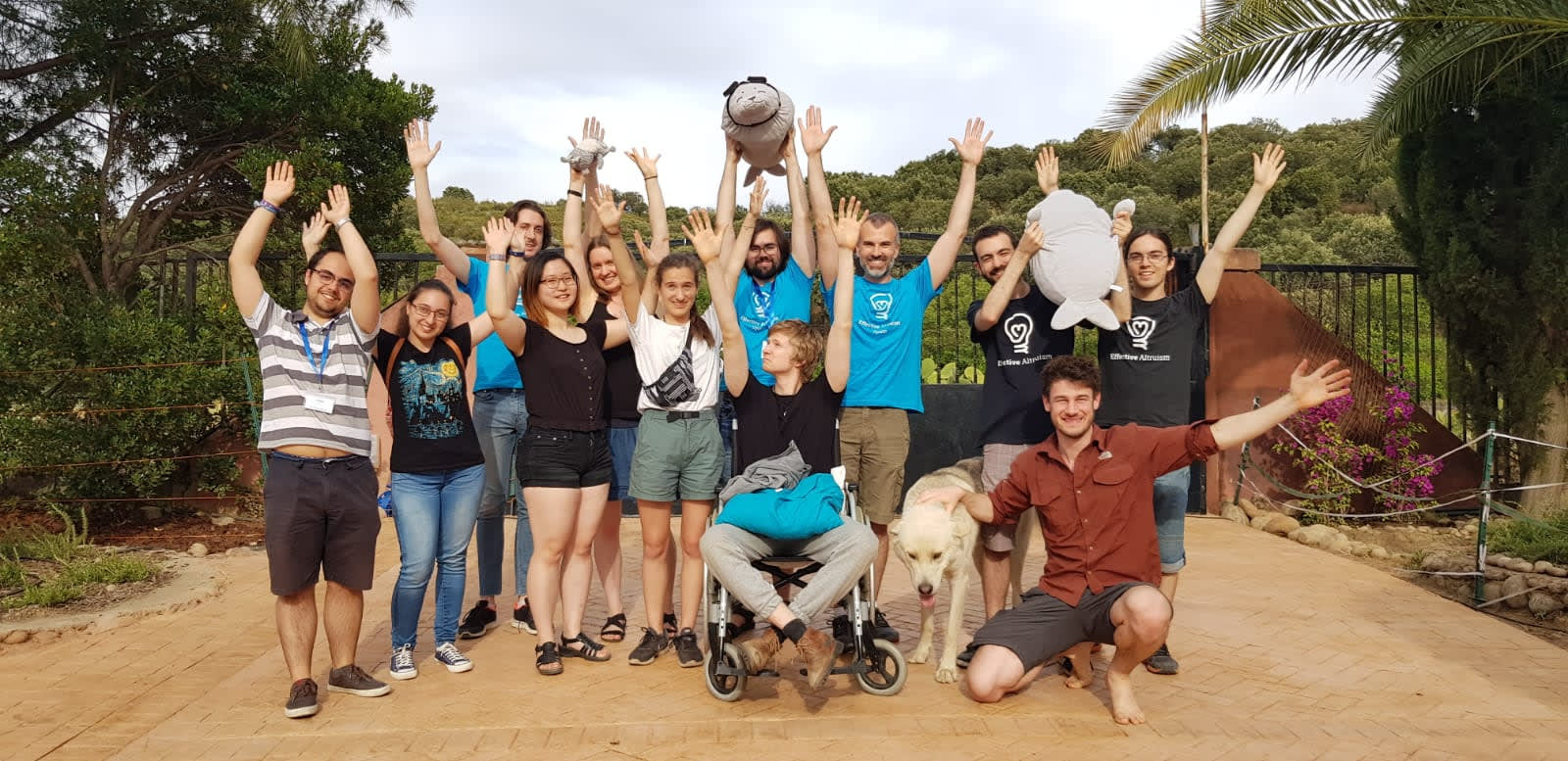
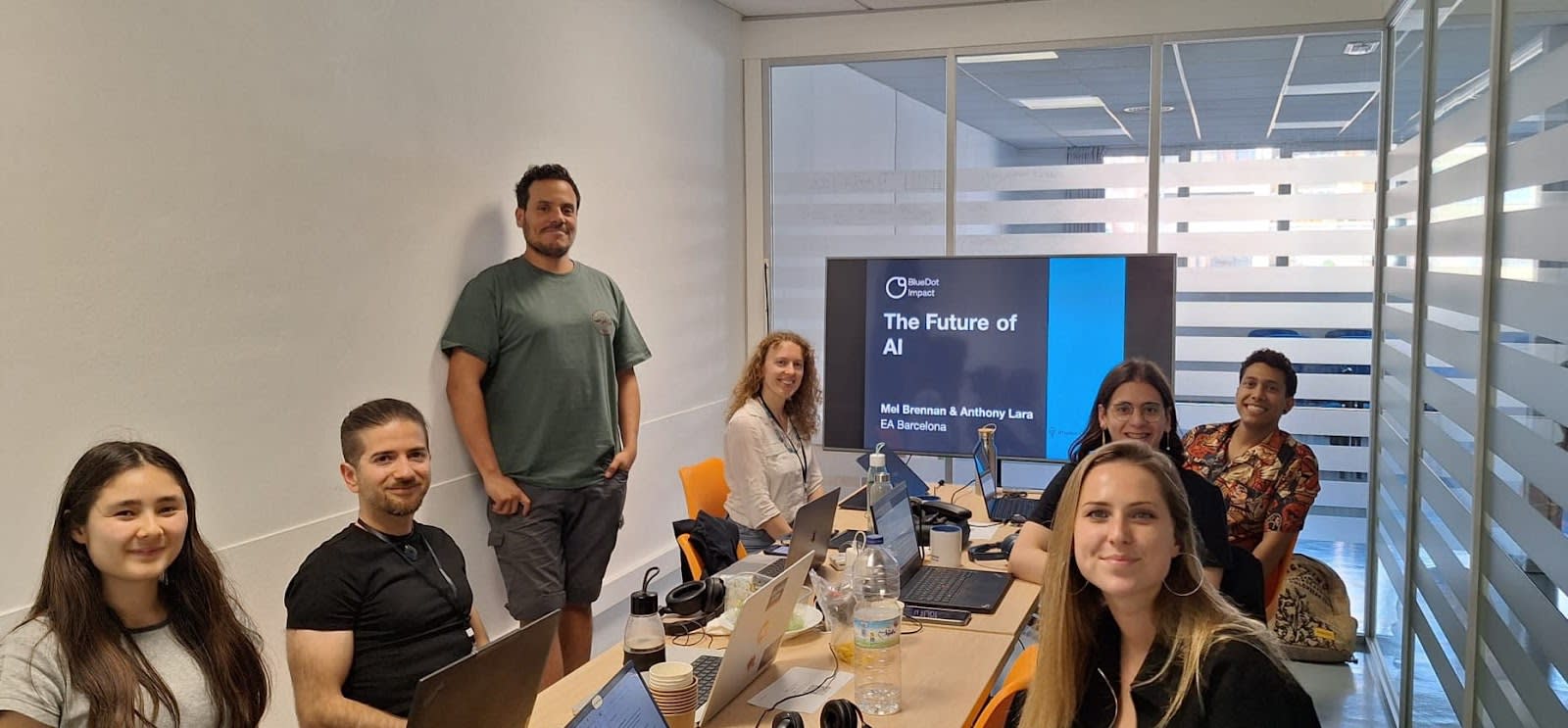
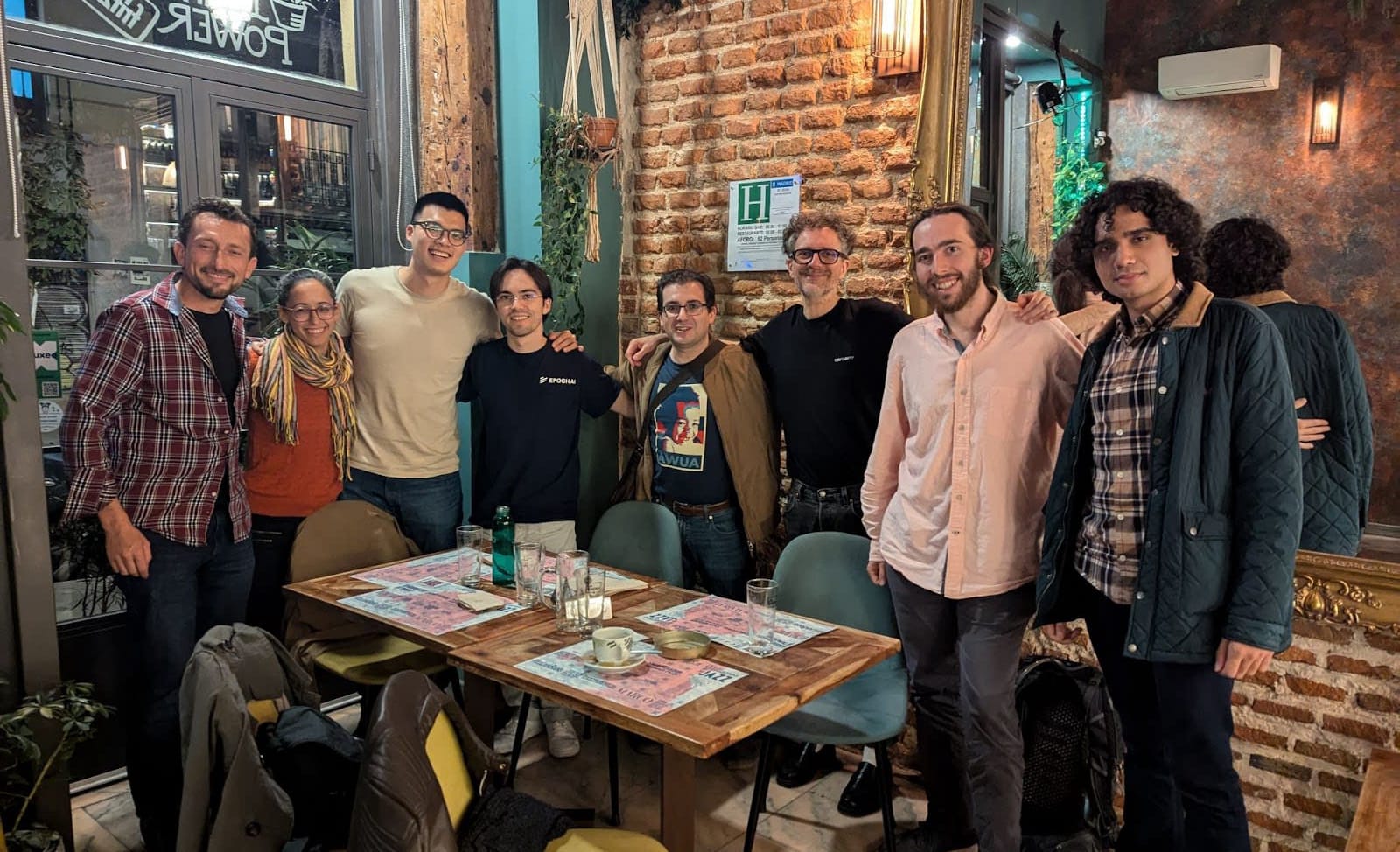
Why do a retreat?
Retreats are one of the best ways to accelerate trust and collaboration in early-stage communities. In Spain, while there’s growing EA activity, it’s fragmented. Many people working on EA-related projects had never met in person - or only know each other as names in a Slack thread or WhatsApp group. Until recently, there was little shared context or cohesive sense of an “EA Spain ecosystem.”
Therefore, what felt most needed wasn’t more expert talks, but time together under one roof. Our goal was to transform a loose network of individuals into a more cohesive community.
Specifically, we had three key objectives:
- Strengthen bonds between Madrid and Barcelona, the two largest EA hubs.
- Spark new collaborations across cause areas and personal projects.
- Inspire ownership so that more people feel motivated to shape the future of EA in Spain.
How did we plan the retreat?
Our planning was guided by a few core principles that formed our Theory of Change:
- Put the whole system in one room. Visibility is the first step to coordination.
- Design for connection, then for collaboration. Trust, built through shared experiences, is the foundation for ambitious projects.
- Make collaborations easy to start. Low-friction formats lower the barrier for everyone to propose a session or find a 1-on-1.
- End with commitments. A dedicated closing session ensures the retreat's energy is converted into actionable next steps.
We chose an “unconference” format to embody these principles. The goal wasn’t polished talks, but rather empowering participants to co-create the weekend.
With this approach in mind, our planning process followed these key steps:
- Four months out: Initial setup. We formed a four-person organizing team (one based in Madrid, one in Cuenca, and two in Barcelona) and set the vision, dates, and rough budget (~€72pp).
- Three months out: Gauge interest & find a venue. We sent out a simple Expression of Interest form to estimate numbers before committing to a venue. In the end we chose Casa Rural Guadalupe-Herrador. It's appeal lay in the affordability, the location (halfway between Madrid and Barcelona), and the space (e.g. a nice outdoor common area which could accommodate all of us). The downsides were complicated public transportation connections and small, shared rooms.
- Two months out: Secure funding & open applications. Once the venue was chosen, we submitted a budget proposal to CEA. After approval, we created and circulated the official application form through all known EA channels in Spain, aiming for a target of 24 attendees.
- Six weeks out: Participant selection & logistics. We received 35 applications, which we reviewed and then sent out confirmations and rejections. From there, we prepared the essential documents: an Info Pack with travel advice, a Retreat Directory for participants to introduce themselves, and a detailed plant-based Meal Plan.
- Final weeks: Execution. The final push involved buying groceries, preparing the schedule and materials for the sessions, and finalizing the on-site schedule and volunteer roles.
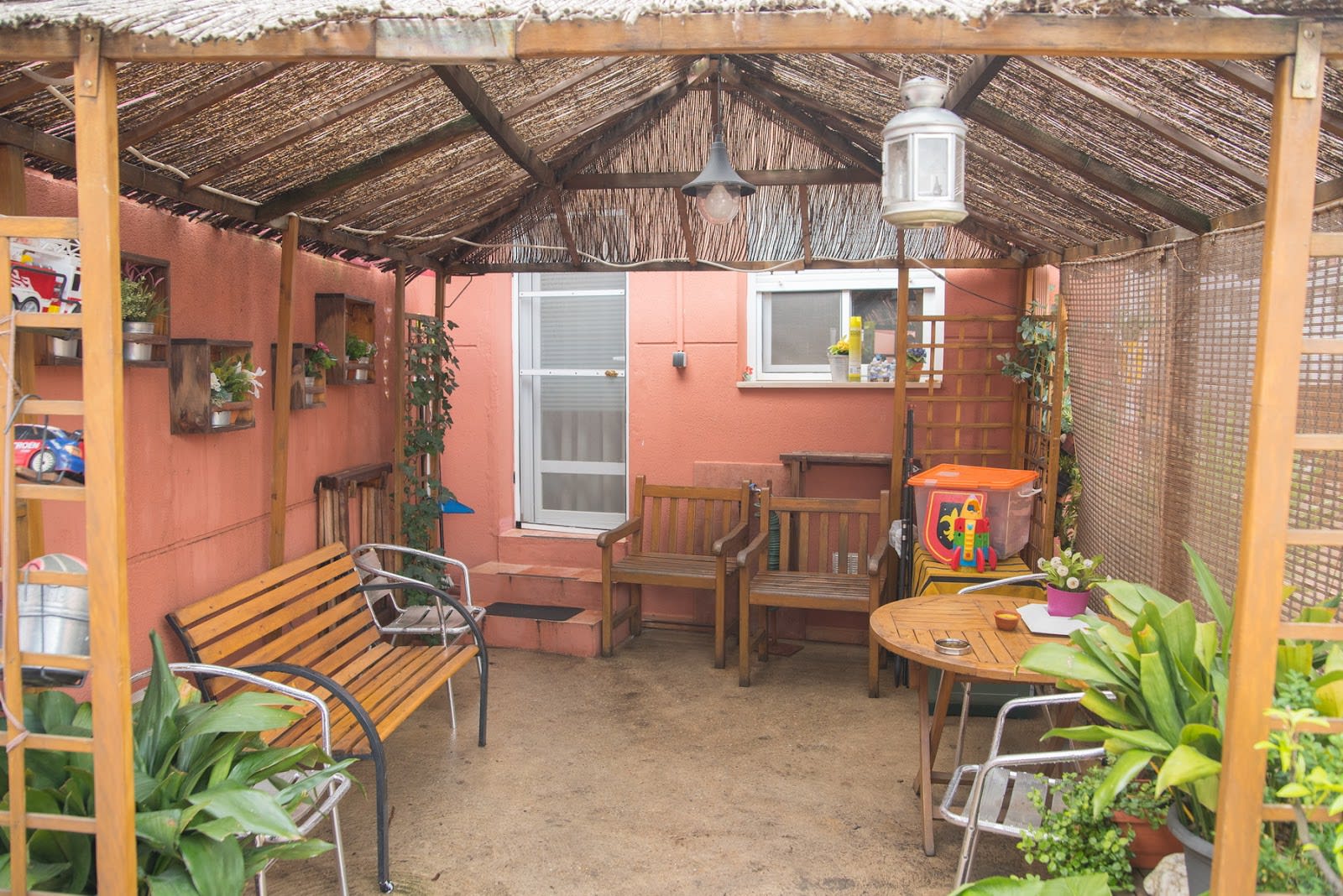
How did the retreat go?
The weekend excelled at relationship-building and cross-city cohesion, helped launch concrete plans, and made clear possible improvements for next time around impact-oriented programming. Some specifics:
- Overall average rating: 8.6/10
- Connections: 100% of the respondents made at least one new connection[1]; the majority made 3+, and 3 people made 10+.
- Top-rated elements: Speed-friending, organic conversations, evening social time, and shared meals.
The retreat spurred several new collaborations, including an EA Barcelona - EA Madrid mentorship plan, and alignment around near-term community events. Most notable here was a national book club for Pablo Melchor’s upcoming book, Altruismo Racional.
Some quotes from attendees:
“Speed friending and a conversation about hiring in AI companies… helped me get my career plan on track.”
“I got to know many great, very cool and smart people and it’d be great if we could meet again somewhat regularly. I really enjoyed the vibe and the conversations, and also group sessions directed at answering a question or tackling a problem (like the EA Spain strategising session)”
“Retreat helped clarify goals and inspired ongoing engagement - a national summit or regular reunion would be great!”
Lessons Learned
Things We’d Keep the Same
- Speed friending early on. This was the favorite event by far, and we’re convinced that this should be a default event for any retreat where not everyone knows each other well. To make it more meaningful, we ran basic introductions (name, profession, etc.) in the session beforehand - allowing speed friending to focus on deeper connection using curated prompts. Next time we’d add a 30 second warning before each switch.
- Shared, simple meals cooked together. There’s a temptation to order meals, or find some sort of setup where you don’t have to cook each one, in order to have more time elsewhere (which is understandable with large events). However, we found cooking in-house kept costs low and built a sense of camaraderie. The food was consistently praised in the feedback (shout-outs to Anthony with the meal-planning and Isabel with her amazing support and scrumptious carrot cake!).
- Sized right (Fri-Sun, ~22 people). This helped create an intimate enough space for whole-group moments, and was big enough for allowing diverse perspectives.
- Mix of essential + optional sessions. A small number of required anchors with room for participant-led ideas helped set the right tone for an “unconference” feel.
- Taking photos/videos. Two in-house photographers were enough for recording important moments without feeling obtrusive (shout-outs to Pablo R. and Mel) .
- Morning grounding/meditation check-ins. Each morning, we held a short, 15-minute session before the main content began. It included a simple guided meditation followed by a prompt for private journaling, such as: "What is one connection you want to make or one question you want to explore today?" This was a nice way to settle the room, shift the focus from the morning coffee buzz to intentional engagement, and help participants connect their personal goals to the day's schedule.
- Retreat directory + pre-info. Pre-retreat we created a simple slide deck where each attendee added one slide with their photo, a brief bio, and topics they wanted to discuss. This was very effective for helping people decide who to connect with and seeded many 1-on-1s before the retreat even began.
- Protect unstructured social time: While it’s tempting to pack a schedule with workshops and talks, we found that many connections often happened during informal moments. The evenings, meal clean-ups and coffee-breaks were critical for building trust and allowing collaborations to come up naturally.
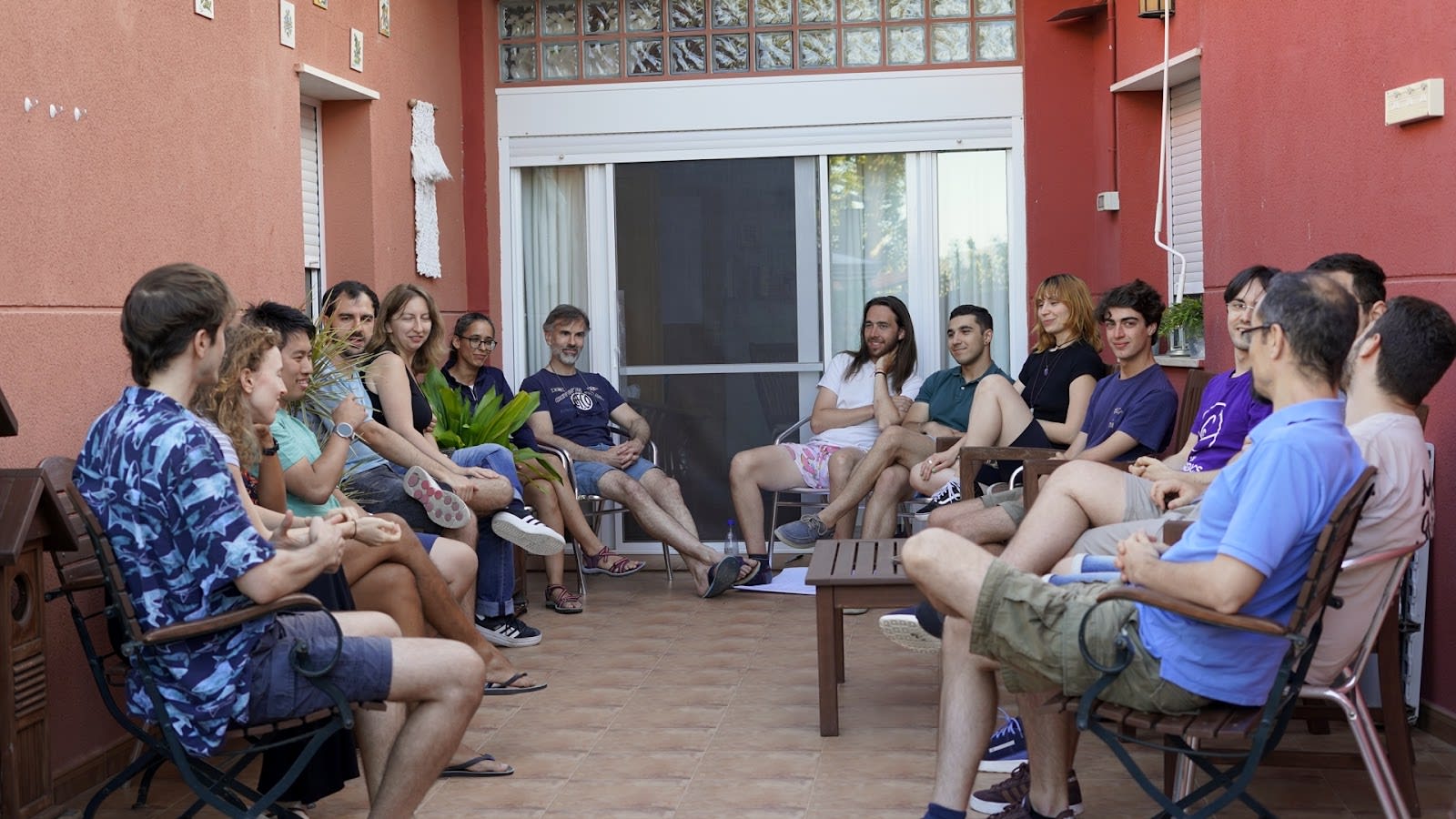
Things We’d Change
- Double down on more impact-focused activities. Most participants marked making connections as the most desired result of the weekend, but we probably over-optimized the schedule for social connection rather than professional engagement.
- Start with a stronger, central “Why”. We missed a key opportunity to clearly articulate the “why” behind both the retreat itself and the broader community-building efforts in Spain. Without a moment dedicated to grounding everyone in the larger vision, we may have overlooked a chance to strengthen the group’s shared sense of purpose - why this work matters, how it connects to the global EA movement, and how each participant could play a role in shaping the future of the community.
- Be directive about the unconference session creation. We tried to prompt people to come up with ideas for sessions they could run ahead of time but, despite reminders, that didn’t really work. We probably missed a natural opportunity to follow-up on this during the retreat itself, where we could have taken an early session to urge people to actually sit down and think of sessions on topics they could propose, then fixing those on the schedule for the weekend.
- (Be sure you’re sitting down for this one) 1-on-1s weren’t a great idea. Some people liked them and found them impactful, but we dedicated three time slots to 1:1s over the course of the weekend, which was clearly too much in hindsight. We think the issue is that we didn’t really have a critical mass of people working on the same area, if even working directly on an EA cause at all, which is often the backbone of good conversations at an EAG.
- Set shift leaders for volunteering. We asked people to volunteer for tasks, but since no one was assigned as the lead for each shift, it often ended up being the organizers who had to coordinate everything. Tristan has just come back from the EA Summer Camp where they assigned one volunteer per shift who was in charge of organizing the other volunteers, plus someone else in charge of each meal outside of the organizing team. We think we’d repeat that system in the future.
- Consider a wider range of potential topics attendees could present on. We thought specifically about who could present on core EA topics, but didn’t find that many opportunities. Over the course of the weekend though, we realized that many people possessed deep knowledge about adjacent topics that were still quite relevant (e.g. what work in operations is like, or what economists have to say about transformative AI). Next time, we’d make presentations more of a focus, and leverage this wider range of potential topics.
- Come in with a plan of how to run the core events. We started some sessions with a clear structure in mind, and left others fairly open, with the idea that a structure would emerge organically during the session. Next time, we’d plan how we want to run the core events beforehand and stick to that plan, even if that means a less dynamic process overall.
- Spend more time preparing guidance for what attendees can do after the weekend. Our final-day collaboration session fell a bit flat, as most attendees didn’t have a specific project in mind nor obvious points of professional collaboration with other participants. In the future, we’d expand the focus to include prompts like: "How can participants advance their EA goals, contribute to future events, or explore impactful work?" This would help ensure people leave with greater clarity and direction.
- Being close to nature wasn’t as important as we thought. We optimized for being in a small, quiet town where we could disconnect and be close to a river and a forest, but ended up spending most of the weekend inside the house or in the courtyard. The nature aspect very well may be worth it, but if you go to the effort of booking a place close to nature, ensure you make the most of it! Otherwise, you can save time and hassle by booking a place closer to a big city.
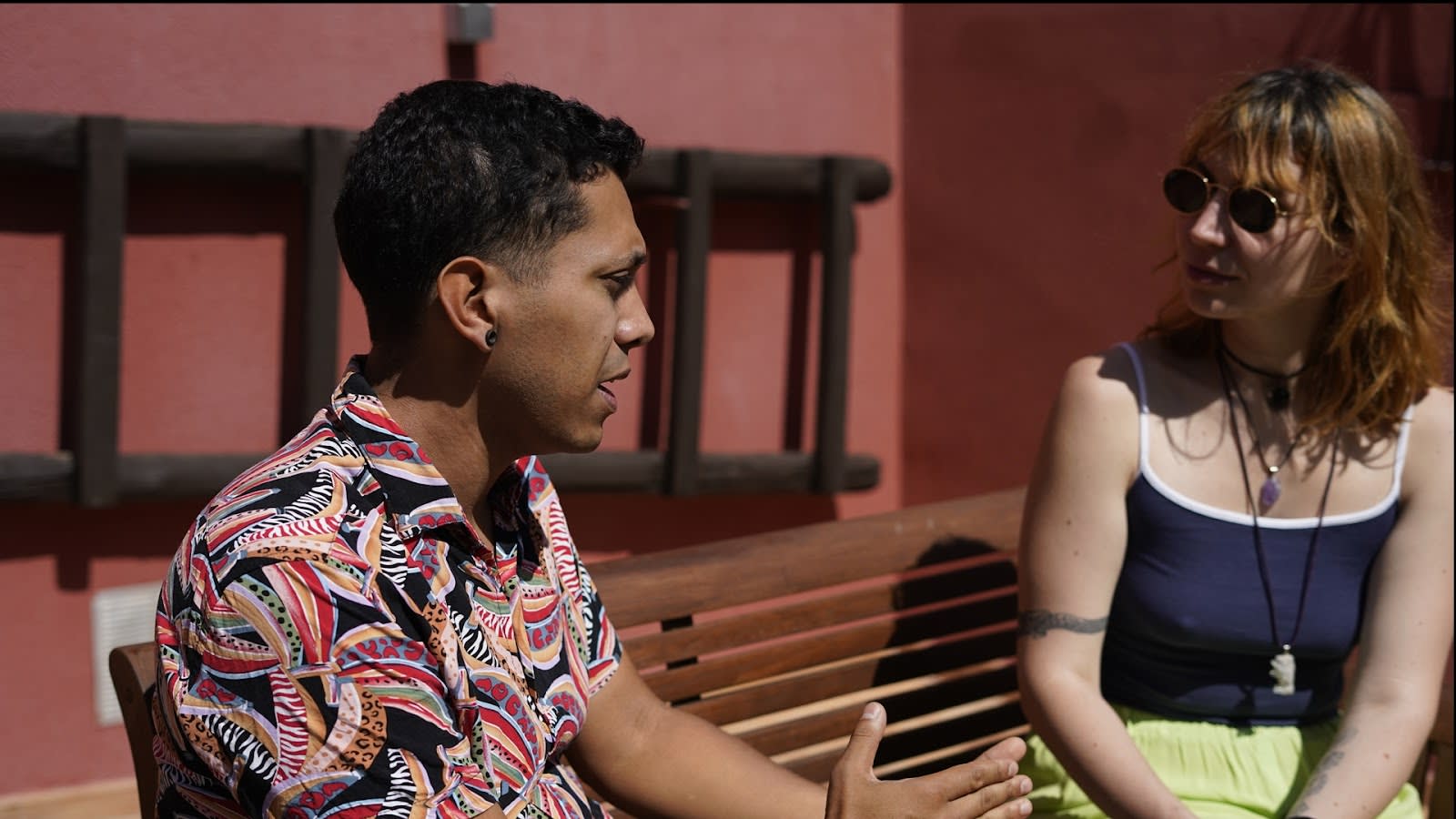
Future plans
The retreat laid the groundwork for stronger collaboration and national identity across the EA Spain community. Participants left with renewed energy, shared context, and a clearer sense of how to support one another going forward.
Some exciting ideas that emerged:
- A national EA Spain Summit in 2026
- A mentorship-style collaboration between EA Madrid and EA Barcelona
- A Spanish-language book club featuring Pablo Melchor’s new book [If you'd like to be part of this, sign up here!]
- Cross-cause gatherings (e.g. AI x philosophy, mental health x community building)
- Ongoing communication channels across cities and groups
Conclusion
We’re really glad we ran this retreat, and it was clear from the feedback that participants felt the same! When a community is present yet fragmented, three focused days together can compress months of connection-building into a single weekend. It can transform “EA as content” into EA as a community — one that knows each other, collaborates, and acts together. That’s why we ran this retreat, and why we believe it was the right move for EA in Spain at this moment.
Thank you
Thank you to CEA for providing the funding to make this possible, to all our lovely attendees for coming and making it a worthwhile endeavor, and all those who helped us throughout the process.
Shout outs: Isabel Johnson, Juan García, Pablo Rosado, Pablo Melchor, Jemima Jones, Guillaume Vorreux and anyone else we may have forgotten!
Resources
- Forms
- Logistics
- Schedule
*Minor edits made to more accurately describe the past history of the community in Spain.
- ^
A "new connection" was defined on our feedback form as someone you would feel comfortable asking for a small favor, such as getting feedback on an idea, an introduction, or help with a small task. We chose this definition to measure the creation of tangible social capital, moving beyond simply "meeting" someone.

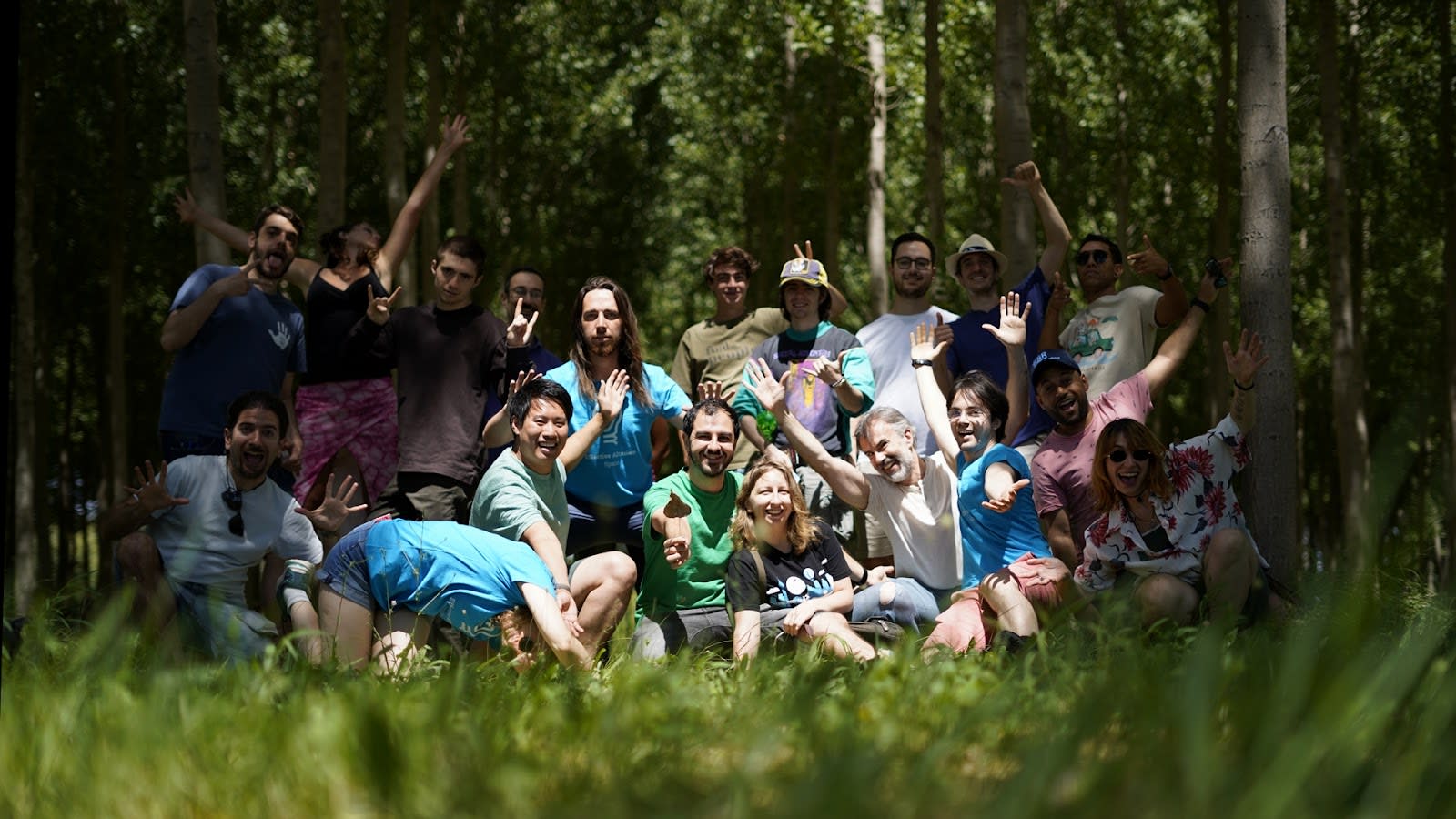
Executive summary: This reflective write-up by EA Spain organizers describes how their first national retreat successfully built cross-city cohesion and sparked collaborations, while also identifying lessons for future retreats, including balancing social connection with impact-focused programming and strengthening follow-up structures.
Key points:
This comment was auto-generated by the EA Forum Team. Feel free to point out issues with this summary by replying to the comment, and contact us if you have feedback.